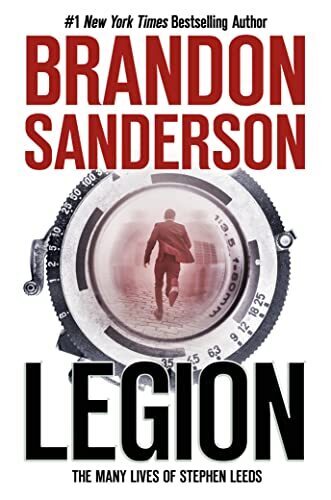
The good
-
It’s Brandon Sanderson, so you get great writing, exciting action, and fully-realized characters.
-
Unique premise: Stephen Leeds is a genius who helps people solve cases, a bit like Sherlock Holmes, but what’s unique is the way his genius manifests: each of his areas of expertise is encapsulated in a person he hallucinates (like multiple personality disorder). E.g., One of his hallucinations is a psychologist, another a historian, another a computer expert, another a weapons specialist, and so on. And to Stephen, all these hallucinations are fully formed people, who talk to each other, and work together—all in his mind, of course—to solve cases.
-
A clever twist on the premise (MINOR SPOILER ALERT): after reading this book for a while, and hearing how Stephen struggles to keep all his hallucinations in order, how overwhelming they can all be, and so on… You realize that this is an allegory for Brandon Sanderson himself! He’s the author of dozens of fantasy books, each with many fully-realized characters, and this is how he must feel every time he sits down to write another book. These characters must be like Stephen Leeds’ own hallucinations, all with full personalities, all interacting, all getting jumbled together. In short, this is a somewhat autobiographical work for Sanderson. So cool!
-
The book consists of several short stories, and each one has its own unique premise too: one is about a camera that can take pictures back in time; another about implanting computer data in human DNA; the third is about virtual reality that can be beamed into your mind. The implications of each are fun to think through.
The not so good
-
Since most of the characters in the story are hallucinations, their interactions aren’t quite as fun as in Sanderson’s normal stories, with real characters.
-
The individual short stories have fun premises, but as the stories are short, they don’t flush out the premises too far. Each one left a lot on the table unexplored, and as a result, is less memorable than Sanderson’s typical tales.
